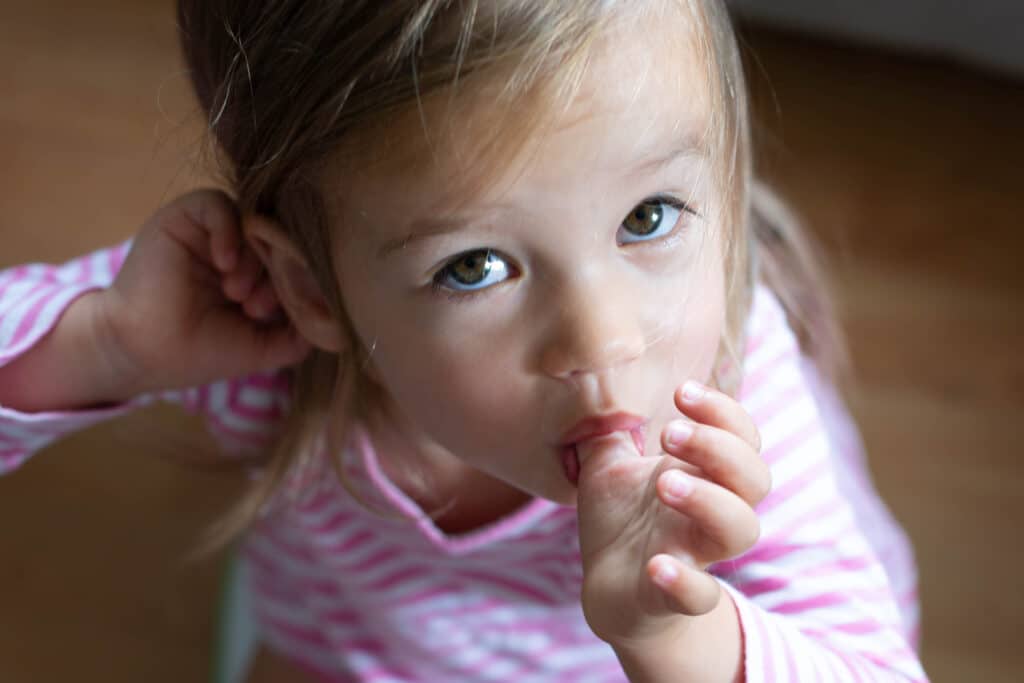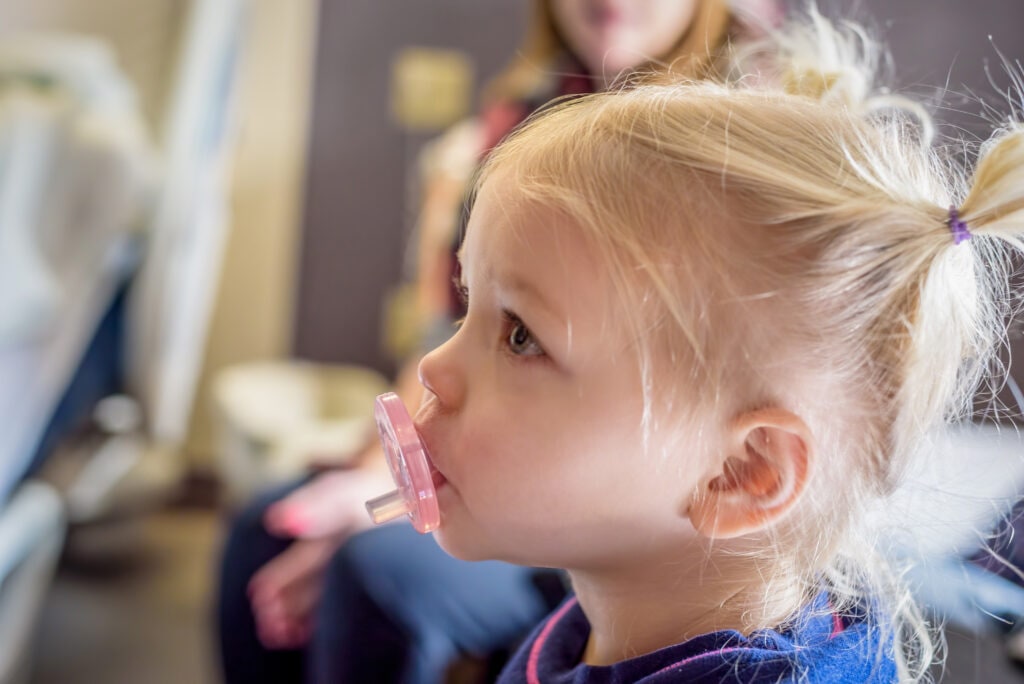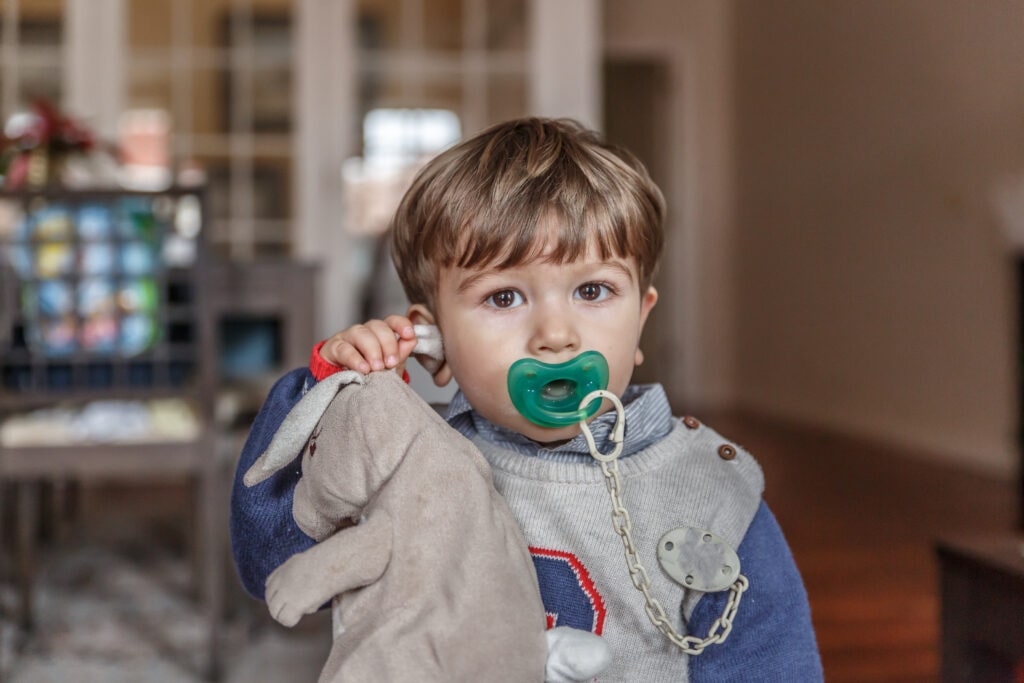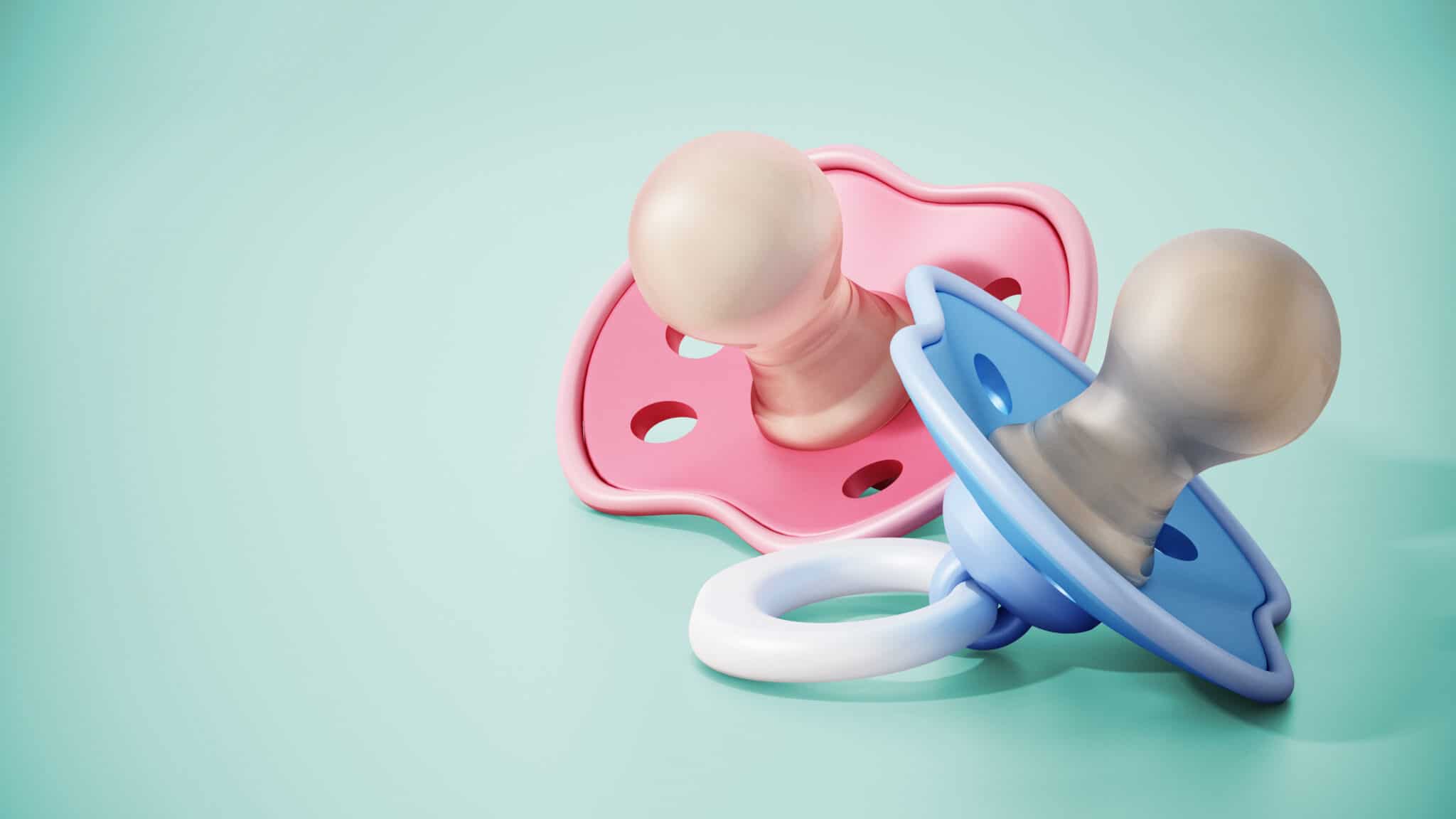Hello! Today we will be talking about why it is important to work on weaning children from using a pacifier and sucking on their thumbs and fingers. You will also gain some practical tips to make weaning possible. We know that weaning a child from these oral comforts can be very emotionally taxing on the child and on you as a busy parent. That is why we want to provide you with the research for motivation and some strategies to help you get through this difficult time. So, first we will discuss three reasons why your child will benefit from weaning from pacifier or finger sucking, and then we will discuss three helpful strategies.
1. Sucking on pacifiers and fingers changes dentition and overall oral structure


Sucking on pacifiers and fingers past a certain age changes dentition and overall oral structure, and can slow down the development of a mature swallowing pattern. When your child is an infant, using a pacifier does not negatively affect their dentition or sucking pattern because sucking on the pacifier mimics what they would do when sucking from a bottle (Scanton, 2013). However, most experts recommend weaning from a bottle and the pacifier/finger sucking at least before the age of 2 years (Geddes, 2017). There are also several studies and articles that indicate weaning from a pacifier around 6-12 months of age is easier and less likely to have negative effects (Roth, 2020). Here at Texarkana Therapy Center, our Speech-Language Pathologists (SLPs) recommend you try and wean your child from the pacifier around 6-18 months of age and it is best to base your timeline on your own child’s development. For example, if they still don’t have any teeth by 12 months of age, then weaning is a little less urgent for that 12-month-old as compared to a 12-month-old who started cutting teeth at 6 months.
2. Using a pacifier has been linked to a higher risk for ear infections.

Multiple studies have indicated that pacifier usage increases an infant’s risk of contracting otitis media, or middle ear infections. One study’s results indicated that pacifier usage had a higher correlation to ear infections than mouth breathing and dental malocclusions (Niemelä, Uhari, & Hannuksela, 2004). Another study indicated that reducing pacifier usage could reduce the number of ear infections by 29% (Peck, 2000). Yet another study indicated that pacifier usage increased the risk of contracting ear infections by 50% (Greene, 2006).
3. Pacifiers cause missed opportunities for speech development

If your child has something in their mouth at all times, then they are missing out on learning how to make sounds and talk with their mouth. Oral play such as blowing raspberries, babbling, and even mouthing toys, is an important part of speech and language development. Babies need to play around with imitating speech sounds they hear or exploring what they can do with their oral structures before they can use words. Therefore, if they are sucking a pacifier, their thumb, or even from a sippy cup constantly, then they are missing out on the sensory and auditory input of oral play. I have personally seen several children over the age of two who came in for speech therapy and happened to be using a pacifier frequently. When they were able to wean from the pacifier, these children often began making huge gains in their speech and language development very quickly. It can be hard to tell how much the pacifier or finger sucking is holding your child back until you have some success with weaning.
Bye-Bye Binky Books
I hope that this post has helped give you some motivation and inspiration for why and how to tackle weaning your child their pacifier. It is important to remember that your child’s progress with weaning may not be a linear one. During weaning, he or she will have good days and bad days just like the rest of us. Don’t get discouraged if she or he seems to regress a little, especially during or after getting sick. You are an awesome parent already, especially considering you are researching and trying to wean them from the pacifier.
Try our Free Online Screening Tool
If you are not in therapy and you are wondering if your child may be falling behind with sensory processing, fine motor skills, speech and language or developmental milestones, please try our online screening tool. You will be given a survey of age-appropriate milestones for speech, language, gross motor skills, fine motor skills and sensory processing for children ages 1-6.
Next Story



